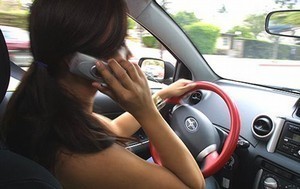News and Events
November 10, 2008

Will YOUR insurance be canceled for talking on the phone?
By Joe Mauro
Owner/Licensed Agent/Consumer Advocate
Insurance Networking Systems
Study after study shows that using a cell phone while
driving is just plain dangerous. But how
dangerous is it? Dangerous enough that
several states have already banned the use of hand-held cell phones while
driving – and many have legislation pending to follow suit. Plus, the state of
And our state legislators are not alone in their
enforcement of safe driving practices.
According to the Insurance Information Institute, as many as 40
countries around the world restrict or prohibit the use of cell phones while
driving. In the
Will the States ever adopt such a policy? Who knows?
But it’s certainly a possibility.
If cell phone use is illegal while driving, then insurance companies may
be able to convince the state insurance departments to allow them to enforce
“insurance penalties” for drivers who break that law. Similar to drunk driving, such penalties could
include higher rates or even policy cancellation – especially if the driver is
involved in an accident while using the cell phone … and particularly if that
driver causes the accident.
Cell Phones And
“Inattention Blindness”
“Inattention blindness” occurs when a driver is
distracted from the task of driving.
According to a report published by the Insurance Information Institute
“Researchers at the
Now, I think it’s important – and only fair – to note
that cell phone use is not the only distraction that drivers face. The most common potentially dangerous
activity while driving is reaching or leaning – like for something on the seat
or in the glove box. And other
distracting activities include talking to passengers, playing with the radio,
attending to children, putting on make-up, eating and more.
If
you think about it, thinking itself can distract you from your responsibility
to drive attentively and safely. Ever
drive down the road consumed by thoughts about an upsetting situation at work
or in your personal life? We all do. But what are the chances that thinking or
grabbing something on the passenger seat are going to be outlawed while
driving! Here are some more reasons that
insurance companies and legislators are focused on banning cell phones from a
driver’s list of potential distractions …
-
In October 2004,
a young girl’s family received a $2 million award because the girl was killed
by a driver using a cell phone. The
family also filed suit against the driver’s employer because phone records
showed the driver was talking to a client at the time of the accident. That suit
was settled out of court for an undisclosed amount.
-
Inattentive driving accounted for 6.5 percent of crash
fatalities in 2002 — the latest data available — according to the U.S.
Department of Transportation.
- One study, conducted by the National Safety Council in 2001, showed that among those engaged in a cell phone conversation, twice as many missed simulated traffic signals when compared with drivers not talking on a phone. The study, which tested hand-held and hands-free cell phones, also found that it took longer for those surveyed to react to detected signals.
Tips for
Safe Cell Phone Use While Driving
Of course, the safest course is to not use your cell
phone at all while driving. But since
most people will simply ignore that advice, please be as safe as possible with
these tips…
1. Always use a hands-free device.
2. Use voice activation, automatic redial and memory,
speed dial and other features your phone offers.
3. Suspend conversations during hazardous driving
conditions or situations – like poor weather, poor visibility, and heavy
traffic.
4. Don't take notes or look up phone numbers while
driving.
5. Place calls when you're not moving or before pulling
into traffic.
For most of us, driving is the most dangerous activity we engage in, and most of us do it every day. Please be extra cautious when using a cell phone and make sure those you love are extra cautious, too.








